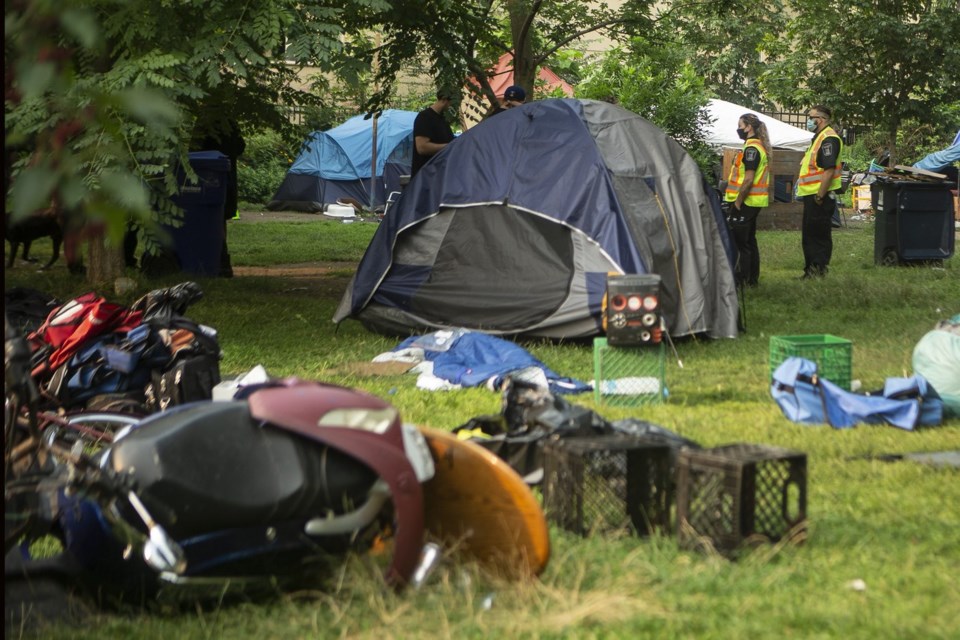TORONTO — Ontario legislation aimed at helping municipalities clear homeless encampments out of public parks will include stronger trespass laws and fines or jail time for illegal drug use in public, Premier Doug Ford announced Thursday.
Families should be able to enjoy parks and people facing homelessness, addiction or mental-health challenges should be supported in the right settings, Ford said.
"These encampments are taking over public spaces, with illegal drug use happening out in the open, creating huge safety risks for people and communities," he said at a press conference. "Enough is enough. This has to stop, and it will stop."
The bill is set to strengthen penalties for people who repeatedly break trespass laws, adding "continuous trespassing" as an aggravating factor the courts would consider during sentencing.
The legislation would also allow police and provincial offences officers to ticket or arrest people using illegal drugs in public, with penalties of up to $10,000 or six months in jail.
The government says it is considering allowing the courts to provide rehabilitation as an alternative to incarceration for minor or non-violent drug crimes, and Ford said he is not considering involuntary treatment at this time.
Ford has said he doesn't expect to use the controversial legislative tool known as the notwithstanding clause that would override the Canadian Charter of Rights and Freedoms, but is "fully prepared" to if the courts "interfere."
It is unclear when these measures would take effect, as the Ontario legislature is set to rise on Thursday for its winter break.
Homelessness and encampments have risen dramatically in the past several years, which Ford's critics attribute to poor progress on initiatives such as building supportive housing.
Shelters throughout the province are full, with some 12,000 people living in Toronto's shelters alone. The Association of Municipalities of Ontario estimates there were at least 1,400 homeless encampments in communities small and large throughout the province last year.
Ford's critics have said measures to force people out of encampments will do little to help if there are not enough places for them to go.
The premier also announced an additional $75.5 million Thursday toward homelessness prevention programs, including $50 million for affordable housing, $20 million to expand shelter capacity and $5.5 million to top up the Canada-Ontario Housing Benefit so as to immediately free up emergency shelter spaces.
That is in addition to nearly $700 million annually the province says it puts toward homelessness prevention programs and a recently announced $378 million to create 19 homelessness and addiction recovery treatment hubs, with up to 375 highly supportive housing units. Those hubs are being established in place of drug-consumption sites the province intends to shut down in the spring.
The Ford government legislation comes after 12 mayors wrote to the premier asking him for tougher laws on encampments. Those mayors and others were on hand for Ford's press conference Thursday.
Oshawa Mayor Dan Carter said as someone who has been a recovering alcoholic and drug addict for the past 34 years, "compassionate intervention" is the way to go.
"If this is about saving people's lives, why don't we put everything on the table and say, 'What are we going to do to be able to save these people's lives?'" he said.
"I find it — and my colleagues find it — unacceptable that people are in tents that can either freeze to death or burn to death. Families expect us to do more, and we're committed to do more."
This report by The Canadian Press was first published Dec. 12, 2024.
Liam Casey and Allison Jones, The Canadian Press



.png;w=120;h=80;mode=crop)